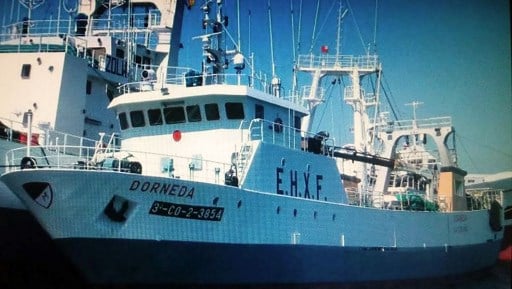A judge in Argentina in September 2013 called for the extradition of Antonio Gonzalez Pacheco, known as "Billy the Kid", along with another former Spanish policeman, accusing them of torturing prisoners in the latter years of General Francisco Franco's regime.
The judge accused González Pacheco, 67, who earned his nickname for allegedly spinning a gun around his finger as he beat his victims, of torturing 13 people between 1971 and 1975.
"We deny the charges," González Pacheco's lawyer said during his extradition hearing at the National Court in Madrid as dozens of angry supporters of alleged victims of Franco-era abuses protested outside.
"We have a memory, we demand justice," the demonstrators chanted.
Asked by the National Court judge whether he agreed to be extradited to Argentina, González Pacheco replied: "Absolutely not."
The retired policeman had already expressed his opposition to Argentina's extradition request during the first session of the process in December.
González Pacheco is said to have been particularly sadistic during Franco's regime, reportedly telling his victims how much he was enjoying hurting them.
Several of his alleged victims attended the extradition hearing and they were outraged by his denial of the crimes.
"This is a farce!" said Enrique Aguilar Benítez, who says he was tortured by the former policeman, after he left the hearing.
1977 amnesty law
The Argentine judge issued international arrest warrants for Pacheco and another former policeman, Jesús Muñecas Aguilar, 75, under the principle of universal jurisdiction, which allows certain human rights abuses to be pursued and tried elsewhere if the country in which they occurred did not investigate.
Muñecas Aguilar also denied the torture allegations made against him, and refused to be sent to Argentina to face trial during his extradition hearing last week at the National Court.
Spanish state prosecutors have also challenged the extradition bid — a sensitive affair in Spain where the wounds of the 1936-1939 civil war and ensuing dictatorship of Franco are still raw.
State prosecutor Pedro Martinez said that if Argentina wanted to prosecute the suspects it should do so through the Spanish courts.
"It is possible to reject extradition and, to respond to diplomatic engagements, allow Argentine authorities, if they desire, to file a complaint in Spain," he told the National Court on Thursday.
He said this would allow "the victims to be heard in Spanish courts, which has not yet happened."
The Argentinian probe started after a much publicised investigation into Franco-era crimes launched by famed former Spanish Judge Baltasar Garzón hit a standstill when the magistrate was barred from the bench in 2012 for overstepping his jurisdiction in a separate case.
Garzón's Franco crimes probe faced stiff opposition in Spain because it was seen as going against a 1977 amnesty that was adopted to unify the country after Franco's death in 1975.
United Nations justice rapporteur Pablo de Greiff in February urged Spain to scrap the amnesty law, saying it "has been used to shelve practically all of the cases brought before the judges" by people trying to prosecute alleged Franco-era atrocities in Spanish courts.
He also expressed "concern" that Spanish state prosecutors had opposed Argentina's extradition request for Gonzalez Pacheco.
Franco ruled Spain from the end of the country's 1936-39 civil war until his death in 1975 and brutally oppressed political opponents during this period.
A United Nations working group in September urged Spain to investigate the suspected forced disappearances of 100,000 people during the civil war and ensuing Franco dictatorship.
Don't miss stories about Spain, join us on Facebook and Twitter.




 Please whitelist us to continue reading.
Please whitelist us to continue reading.
Member comments